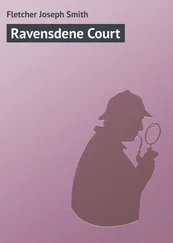Joseph Fletcher - The Herapath Property
Здесь есть возможность читать онлайн «Joseph Fletcher - The Herapath Property» — ознакомительный отрывок электронной книги совершенно бесплатно, а после прочтения отрывка купить полную версию. В некоторых случаях можно слушать аудио, скачать через торрент в формате fb2 и присутствует краткое содержание. Жанр: foreign_prose, Классический детектив, foreign_detective, foreign_antique, на английском языке. Описание произведения, (предисловие) а так же отзывы посетителей доступны на портале библиотеки ЛибКат.
- Название:The Herapath Property
- Автор:
- Жанр:
- Год:неизвестен
- ISBN:нет данных
- Рейтинг книги:5 / 5. Голосов: 1
-
Избранное:Добавить в избранное
- Отзывы:
-
Ваша оценка:
- 100
- 1
- 2
- 3
- 4
- 5
The Herapath Property: краткое содержание, описание и аннотация
Предлагаем к чтению аннотацию, описание, краткое содержание или предисловие (зависит от того, что написал сам автор книги «The Herapath Property»). Если вы не нашли необходимую информацию о книге — напишите в комментариях, мы постараемся отыскать её.
The Herapath Property — читать онлайн ознакомительный отрывок
Ниже представлен текст книги, разбитый по страницам. Система сохранения места последней прочитанной страницы, позволяет с удобством читать онлайн бесплатно книгу «The Herapath Property», без необходимости каждый раз заново искать на чём Вы остановились. Поставьте закладку, и сможете в любой момент перейти на страницу, на которой закончили чтение.
Интервал:
Закладка:
Mr. Tertius went slowly homeward, head bent and eyes moody. He let himself into the house; at the sound of his step in the hall Peggie Wynne looked out of the study. She retreated into it at sight of Mr. Tertius, and he followed her and closed the door. Looking narrowly at her, he saw that the girl had been shedding tears, and he laid his hand shyly yet sympathetically on her arm. “Yes,” he said quietly, “I’ve been feeling like that ever since—since I heard about things. But I don’t know—I suppose we shall feel it more when—when we realize it more, eh? Just now there’s the other thing to think about, isn’t there?”
Peggie mopped her eyes and looked at him. He was such a quiet, unobtrusive, inoffensive old gentleman that she wondered more than ever why Barthorpe had refused to admit him to the informal conference.
“What other thing?” she asked.
Mr. Tertius looked round the room—strangely empty now that Jacob Herapath’s bustling and strenuous presence was no longer in it—and shook his head.
“There’s one thought you mustn’t permit yourself to harbour for a moment, my dear,” he answered. “Don’t even for a fraction of time allow yourself to think that my old friend took his own life! That’s—impossible.”
“I don’t,” said Peggie. “I never did think so. It is, as you say, impossible. I knew him too well to believe that. So, of course, it’s–”
“Murder,” assented Mr. Tertius. “Murder! I heard a man in the street voice the same opinion just now. Of course! It’s the only opinion. Yet in the newspaper they’re asking which it was. But I suppose the newspapers must be—sensational.”
“You don’t mean to say it’s in the newspapers already?” exclaimed Peggie.
Mr. Tertius handed to her the Argus special, which he had carried crumpled up in his hand.
“Everybody’s reading it out there in the streets,” he said. “It’s extraordinary, now, how these affairs seem to fascinate people. Yes—it’s all there. That is, of course, as far as it’s gone.”
“How did the paper people come to know all this?” asked Peggie, glancing rapidly over Triffitt’s leaded lines.
“I suppose they got it from the police,” replied Mr. Tertius. “I don’t know much about such matters, but I believe the police and the Press are in constant touch. Of course, it’s well they should be—it attracts public notice. And in cases like this, public notice is an excellent thing. We shall have to hear—and find out—a good deal before we get at the truth in this case, my dear.”
Peggie suddenly flung down the newspaper and looked inquiringly at the old man.
“Mr. Tertius,” she said abruptly, “why wouldn’t Barthorpe let you come into that room down there at the office this morning?”
Mr. Tertius did not answer this direct question at once. He walked away to the window and stood looking out into the square for a while. When at last he spoke his voice was singularly even and colourless. He might have been discussing a question on which it was impossible to feel any emotion.
“I really cannot positively say, my dear,” he replied. “I have known, of course, for some time that Mr. Barthorpe Herapath is not well disposed towards me. I have observed a certain coldness, a contempt, on his part. I have been aware that he has resented my presence in this house. And I suppose he felt that as I am not a member of the family, I had no right to sit in council with him and with you.”
“Not a member of the family!” exclaimed Peggie. “Why, you came here soon after I came—all those years ago!”
“I have dwelt under Jacob Herapath’s roof, in this house, fifteen years,” said Mr. Tertius, reflectively. “Fifteen years!—yes. Yes—Jacob and I were—good friends.”
As he spoke the last word a tear trickled from beneath Mr. Tertius’s spectacles and ran down into his beard, and Peggie, catching sight of it, impulsively jumped from her seat and kissed him affectionately.
“Never mind, Mr. Tertius!” she said, patting his shoulders. “You and I are friends, too, anyway. I don’t like Barthorpe when he’s like that—I hate that side of him. And anyhow, Barthorpe doesn’t matter—to me. I don’t suppose he matters to anything—except himself.”
Mr. Tertius gravely shook his head.
“Mr. Barthorpe Herapath may matter a great deal, my dear,” he remarked. “He is a very forceful person. I do not know what provision my poor friend may have made, but Barthorpe, you will remember, is his nephew, and, I believe, his only male relative. And in that case–”
Mr. Tertius was just then interrupted by the entrance of a footman who came in and looked inquiringly at Peggie.
“There’s a taxi-cab driver at the door, miss,” he announced. “He says he would like to speak to some one about the news in the paper about—about the master, miss.”
Peggie looked at Mr. Tertius. And Mr. Tertius quickly made a sign to the footman.
“Bring the man in at once,” he commanded. And, as if to lose no time, he followed the footman into the hall, and at once returned, conducting a young man who carried a copy of the Argus in his hand. “Yes?” he said, closing the door behind them and motioning the man to a seat. “You wish to tell us something! This lady is Miss Wynne—Mr. Herapath’s niece. You can tell us anything you think of importance. Do you know anything, then?”
The taxi-cab driver lifted the Argus .
“This here newspaper, sir,” he answered. “I’ve just been reading of it—about Mr. Herapath, sir.”
“Yes,” said Mr. Tertius gently. “Yes?”
“Well, sir—strikes me as how I drove him, sir, this morning,” answered the driver. “Gentleman of his appearance, anyway, sir—that’s a fact!”
Mr. Tertius glanced at Peggie, who was intently watching the caller.
“Ah!” he said, turning again to the driver, “you think you drove either Mr. Herapath or a gentleman of his appearance this morning. You did not know Mr. Herapath by sight, then?”
“No, sir. I’ve only just come into this part—came for the first time yesterday. But I’m as certain–”
“Just tell us all about it,” said Mr. Tertius, interrupting him. “Tell us in your own way. Everything, you know.”
“Ain’t so much to tell, sir,” responded the driver. “All the same, soon’s I’d seen this piece in the paper just now I said to myself, ‘I’d best go round to Portman Square and tell what I do know,’ I says. And it’s like this, sir—I come on this part yesterday—last night it was. My taxi belongs to a man as keeps half a dozen, and he put me on to night work, this end of Oxford Street. Well, it ’ud be just about a quarter to two this morning when a tall, well-built gentleman comes out of Orchard Street and made for my cab. I jumps down and opens the door for him. ‘You know St. Mary Abbot’s Church, Kensington?’ he says as he got in. ‘Drive me down there and pull up at the gate.’ So, of course, I ran him down, and there he got out, give me five bob, and off he went. That’s it, sir.”
“And when he got out, which way did he go?” asked Mr. Tertius.
“West, sir—along the High Street, past the Town Hall,” promptly answered the driver. “And there he crossed the road. I see him cross, because I stopped there a minute or two after he’d got out, tinkering at my engine.”
“Can you tell us what this gentleman was like in appearance?” asked Mr. Tertius.
“Well, sir, not so much as regards his face,” answered the driver. “I didn’t look at him, not particular, in that way—besides, he was wearing one of them overcoats with a big fur collar to it, and he’d the collar turned high up about his neck and cheeks, and his hat—one of them slouched, soft hats, like so many gentlemen wears nowadays sir—was well pulled down. But from what bit I see of him, sir, I should say he was a fresh-coloured gentleman.”
Читать дальшеИнтервал:
Закладка:
Похожие книги на «The Herapath Property»
Представляем Вашему вниманию похожие книги на «The Herapath Property» списком для выбора. Мы отобрали схожую по названию и смыслу литературу в надежде предоставить читателям больше вариантов отыскать новые, интересные, ещё непрочитанные произведения.
Обсуждение, отзывы о книге «The Herapath Property» и просто собственные мнения читателей. Оставьте ваши комментарии, напишите, что Вы думаете о произведении, его смысле или главных героях. Укажите что конкретно понравилось, а что нет, и почему Вы так считаете.












